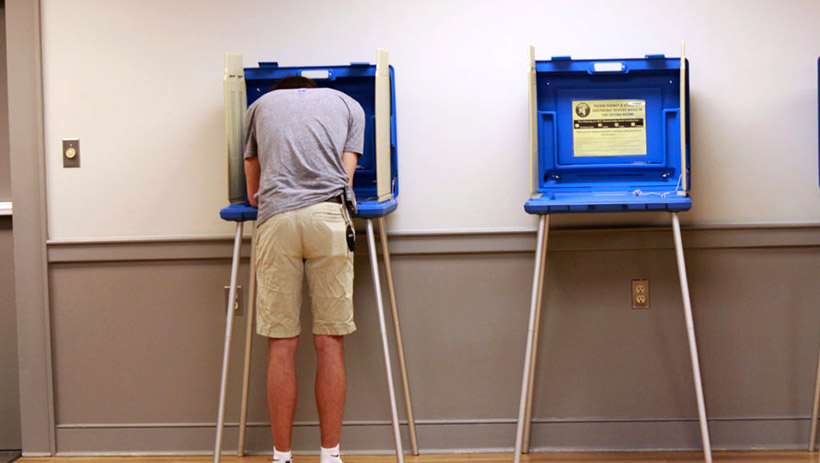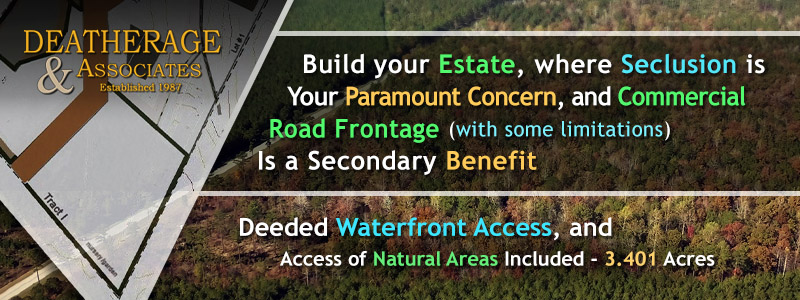The Human Touch Revealing All that is Real
What N.C. Voters Need to Know on Super Tuesday
Publisher's note: This post appears here courtesy of the Carolina Journal, and written by Brooke Conrad.

Super Tuesday isn't the only novelty for North Carolina voters this year.
Many voters have new legislative and congressional districts after a three-judge panel ordered the General Assembly to draw new maps last year. Federal and state courts have also put a controversial voter ID law on temporary hold. And legislation passed in November will seek to limit absentee ballot fraud after a massive scheme was uncovered in the 2018 9th District congressional race.
Here's what you need to know for primary day, Tuesday, March 3.
It's possible the court could rule to either uphold or dispose of the voter ID law altogether. But issuing a temporary injunction strongly suggests the court will rule against it.
If a voter casts his or her ballot at the wrong precinct, some ballot selections still may be counted, said Wake County Board of Elections member Gerry Cohen. While he wouldn't encourage voters to choose a random polling place, Cohen said votes for president, U.S. Senate, governor, and council of state can be cast at any precinct. Congressional races would also cover some precincts outside of the voter's district.
Anyone concerned about the virus should take the same precautions one would take in entering a movie theater or grocery store, Cohen said.
North Carolina briefly allowed vote changes between 1975 and 1979, Cohen said. The policy was a "logistical nightmare" for election officials, who had to physically thumb through thousands of ballots at various voting sites.
Democratic turnout at the polls was 30% higher this year than in 2016, while Republican turnout was 12% lower, Cohen noted. This is not surprising, since Democrats are the only party with a competitive presidential primary.
North Carolina also saw an increase of voter registrations this year - nearly 1.1 million, noted N.C. FreeEnterprise Foundation Executive Director Anna Beavon Gravely. Some 25% of those new voters live in Wake or Mecklenburg County. Wake County also increased its number of voting sites from nine to 12 since 2016, Cohen said.
Sixty-one percent of new voters are younger than 30, which could benefit Democratic presidential candidate Bernie Sanders, who garners much of his support from the younger demographic, Gravely added.
This year is also North Carolina's first year as a Super Tuesday state, which means voters are likely suffering less from "primary fatigue." Before, North Carolinians voted after Super Tuesday, when presidential nominees are largely decided.
As of now, only 155 delegates have been selected, and 14 states will select another 1,357 delegates by the end of primary day.
"Being on the deciding end is exciting," Gravely said. "If you're new to the state, that's actually a big deal."
The "Combat absentee ballot fraud" legislation passed last year would prevent anyone from turning in a stack of request forms, Cohen said. The legislation was enacted in response to a large absentee ballot fraud scheme uncovered in the aftermath of the 2018 9th District race.
The election board will randomly select two precincts to audit the day after the election, Cohen said. To audit the election, officials will hand count all ballots at those precincts and make sure they match the machine readouts.
Go Back

Photo: Kari Travis/Carolina Journal
Super Tuesday isn't the only novelty for North Carolina voters this year.
Many voters have new legislative and congressional districts after a three-judge panel ordered the General Assembly to draw new maps last year. Federal and state courts have also put a controversial voter ID law on temporary hold. And legislation passed in November will seek to limit absentee ballot fraud after a massive scheme was uncovered in the 2018 9th District congressional race.
Here's what you need to know for primary day, Tuesday, March 3.
Do I need to bring my ID?
No voter will be required to show ID in the state primary. The voter ID law, passed by lawmakers in December 2018, is currently enjoined until a final ruling. It's unclear whether that ruling would be issued before the general election in November.It's possible the court could rule to either uphold or dispose of the voter ID law altogether. But issuing a temporary injunction strongly suggests the court will rule against it.
How do I know if my district has changed?
Voters can look up their districts by visiting ncsbe.gov and clicking "Voter/Absentee Lookup."If a voter casts his or her ballot at the wrong precinct, some ballot selections still may be counted, said Wake County Board of Elections member Gerry Cohen. While he wouldn't encourage voters to choose a random polling place, Cohen said votes for president, U.S. Senate, governor, and council of state can be cast at any precinct. Congressional races would also cover some precincts outside of the voter's district.
Should I be concerned about the Coronavirus?
The Coronavirus likely won't disrupt the primary, Cohen said. The virus could affect other states that hold their primaries in later weeks.Anyone concerned about the virus should take the same precautions one would take in entering a movie theater or grocery store, Cohen said.
What if I voted for Pete Buttigieg or Amy Klobuchar (or another drop-out candidate)?
N.C. voters can't change their votes after they're cast. However, any voters who filled out an absentee ballot and haven't yet mailed or turned it in can still vote in person on election day.North Carolina briefly allowed vote changes between 1975 and 1979, Cohen said. The policy was a "logistical nightmare" for election officials, who had to physically thumb through thousands of ballots at various voting sites.
How will early voting affect the total election outcome?
Early voting yielded nearly 800,000 votes across the state this year. That's more than 67,000 more early votes than those cast in the 2016 primary.Democratic turnout at the polls was 30% higher this year than in 2016, while Republican turnout was 12% lower, Cohen noted. This is not surprising, since Democrats are the only party with a competitive presidential primary.
North Carolina also saw an increase of voter registrations this year - nearly 1.1 million, noted N.C. FreeEnterprise Foundation Executive Director Anna Beavon Gravely. Some 25% of those new voters live in Wake or Mecklenburg County. Wake County also increased its number of voting sites from nine to 12 since 2016, Cohen said.
Sixty-one percent of new voters are younger than 30, which could benefit Democratic presidential candidate Bernie Sanders, who garners much of his support from the younger demographic, Gravely added.
This year is also North Carolina's first year as a Super Tuesday state, which means voters are likely suffering less from "primary fatigue." Before, North Carolinians voted after Super Tuesday, when presidential nominees are largely decided.
As of now, only 155 delegates have been selected, and 14 states will select another 1,357 delegates by the end of primary day.
"Being on the deciding end is exciting," Gravely said. "If you're new to the state, that's actually a big deal."
What measures have officials taken to combat voter fraud?
Absentee ballots made up about 2% of all early voting, noted Michael Bitzer, professor of Politics and History at Catawba College. Most early votes were cast in person.The "Combat absentee ballot fraud" legislation passed last year would prevent anyone from turning in a stack of request forms, Cohen said. The legislation was enacted in response to a large absentee ballot fraud scheme uncovered in the aftermath of the 2018 9th District race.
The election board will randomly select two precincts to audit the day after the election, Cohen said. To audit the election, officials will hand count all ballots at those precincts and make sure they match the machine readouts.
| Governor Cooper Urges North Carolinians to Prepare, Practice for Severe Weather | Carolina Journal, Editorials, Op-Ed & Politics | Old Text Places Hotly Contested Political Debates in Context |
Latest Op-Ed & Politics
|
other pro-terrorist protests in Chicago shout "Death to America" in Farsi
Published: Monday, April 15th, 2024 @ 9:13 pm
By: John Steed
|
|
claim is needed "to meet climate targets
Published: Monday, April 15th, 2024 @ 2:07 pm
By: John Steed
|
|
Only two of the so-called “three Johns” will be competing to replace Sen. Mitch McConnell (R-KY) as leader of the Senate GOP.
Published: Monday, April 15th, 2024 @ 12:50 pm
By: Daily Wire
|
|
particularly true on economic matters
Published: Sunday, April 14th, 2024 @ 8:58 pm
By: John Steed
|
|
House Judiciary Chair Jim Jordan (R-OH) is looking into whether GoFundMe and Eventbrite cooperated with federal law enforcement during their investigation into the financial transactions of supporters of former President Donald Trump.
Published: Sunday, April 14th, 2024 @ 6:56 pm
By: Daily Wire
|
|
Turkish diplomatic sources say he did
Published: Sunday, April 14th, 2024 @ 6:08 pm
By: John Steed
|
|
Popularity of government leader crashes, even among his own party members.
Published: Sunday, April 14th, 2024 @ 2:12 pm
By: John Steed
|






















